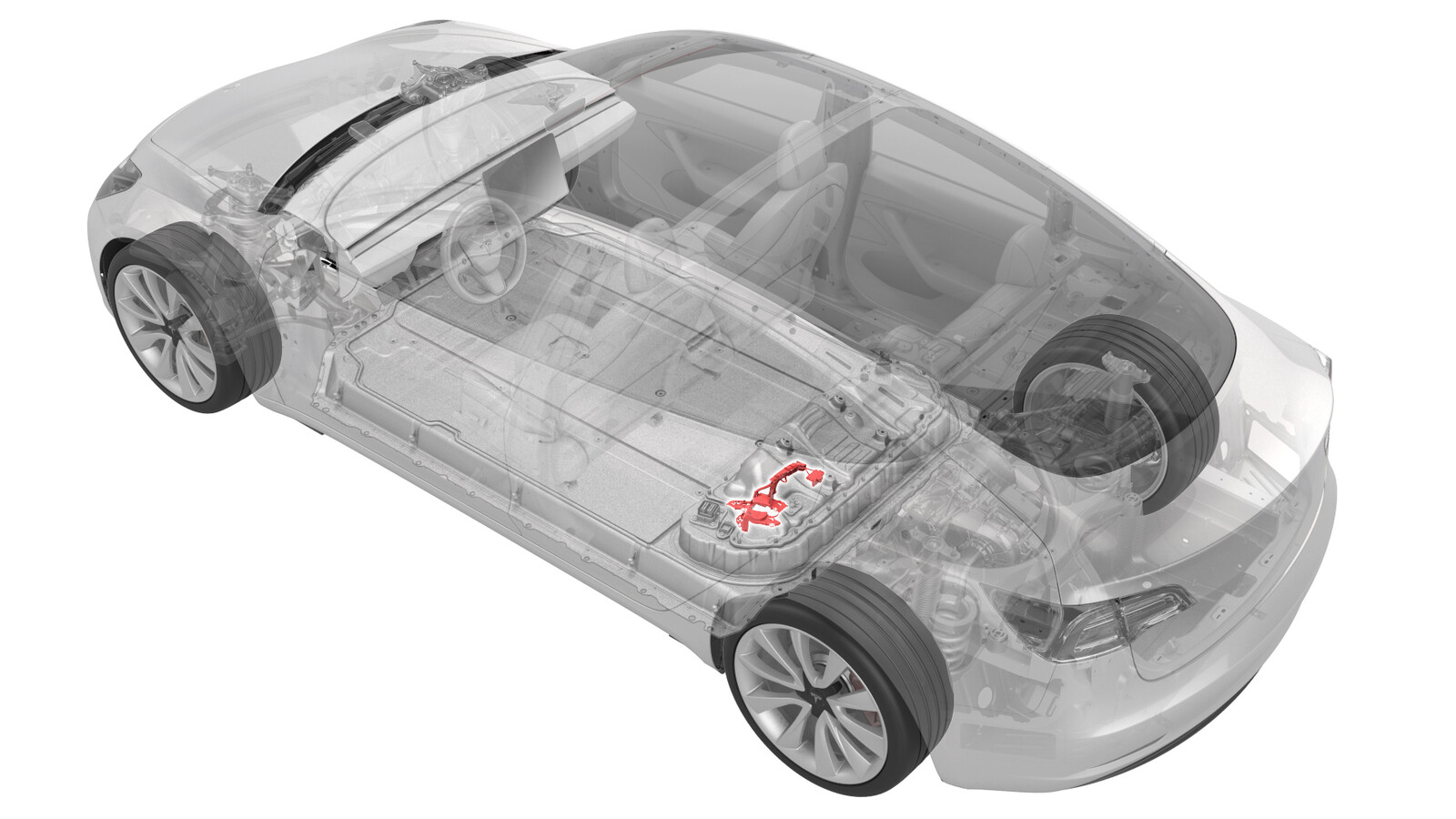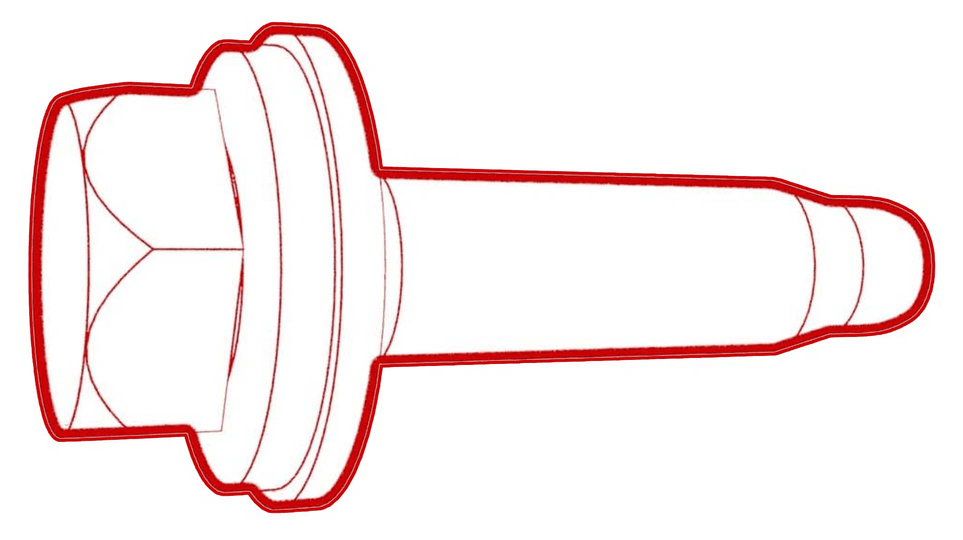Harness - AC Inlet - HV Battery (Remove and Replace)
 Correction code
16305302
2.88
NOTE: Unless otherwise explicitly
stated in the procedure, the above correction code and FRT reflect all of the work
required to perform this procedure, including the linked procedures. Do not stack correction codes unless
explicitly told to do so.
NOTE: See Flat Rate
Times to learn more about FRTs and how they are created. To provide feedback on
FRT values, email ServiceManualFeedback@tesla.com.
NOTE: See Personal Protection to make sure wearing proper PPE when
performing the below procedure. See Ergonomic Precautions for safe and healthy working practices.
Correction code
16305302
2.88
NOTE: Unless otherwise explicitly
stated in the procedure, the above correction code and FRT reflect all of the work
required to perform this procedure, including the linked procedures. Do not stack correction codes unless
explicitly told to do so.
NOTE: See Flat Rate
Times to learn more about FRTs and how they are created. To provide feedback on
FRT values, email ServiceManualFeedback@tesla.com.
NOTE: See Personal Protection to make sure wearing proper PPE when
performing the below procedure. See Ergonomic Precautions for safe and healthy working practices.
- 1076927-00-A Resistance meter, microohm, Hioki RM 3548
Only
technicians who have completed all required certification courses are permitted to
perform this procedure. Tesla recommends third party service provider technicians
undergo equivalent training before performing this procedure. For more information on
Tesla Technician requirements, or descriptions of the subject matter for third parties,
see HV Certification Requirements. Proper personal protective equipment (PPE) and insulating HV
gloves with a minimum rating of class 0 (1000V) must
be worn at all times a high voltage cable, busbar, or fitting is handled. Refer to Tech Note TN-15-92-003, High Voltage Awareness
Care Points
for additional safety
information.
Remove
- Remove the HV battery fast charge contactor. See Contactor - Fast Charge - HV Battery (Remove and Replace).
-
Release the clips that attach the AC inlet terminal covers over the negative and positive ring terminals, and then remove the covers.
-
Remove and discard the bolts that attach the negative and positive ring terminals to the busbars.
i
-
Release the clips (x8) that attach the HV battery fast charge contactor cover to the HV battery fast charge contactor, and then remove the cover with the HV battery AC inlet harness from the contactor.
CAUTIONThe cover is a one-time use as the clips are fragile and break easily.
Install
- Perform a zero adjust of the Hioki resistance meter in preparation to measure resistances later in this procedure. See Resistance Meter (Zero Adjust).
- Use an IPA wipe to clean the mating surfaces of the positive ring terminal to the positive busbar, and the negative ring terminal to the negative busbar.
-
Install the HV battery fast charge contactor cover onto the HV battery fast charge contactor, and fasten the clips (x8) that attach the cover to the contactor.
-
Install new bolts to attach the positive and negative ring terminals to the busbars, and then mark the bolts with a paint pen after they are torqued.
 4.4 Nm (3.2 lbs-ft)
4.4 Nm (3.2 lbs-ft) -
Use the Hioki resistance meter to measure the resistance between the copper portion of the positive ring terminal and the busbar to which that terminal is secured.
NoteThe maximum acceptable resistance is 0.150 mΩ (150 μΩ). There is too much resistance in the High Voltage joint. Remove the fastener, clean areas with isopropyl alcohol, install fastener back and test again
Figure 1. Generic Measurement - Actual busbars and fasteners might appear different -
Use the Hioki resistance meter to measure the resistance between the copper portion of the negative ring terminal and the busbar to which that terminal is secured.
NoteThe maximum acceptable resistance is 0.150 mΩ (150 μΩ). There is too much resistance in the High Voltage joint. Remove the fastener, clean areas with isopropyl alcohol, install fastener back and test again
Figure 2. Generic Measurement - Actual busbars and fasteners might appear different -
Install the AC inlet terminal covers, and fasten the clips that attach the covers over the positive and negative ring terminals.
- Install the HV battery fast charge contactor. See Contactor - Fast Charge - HV Battery (Remove and Replace).